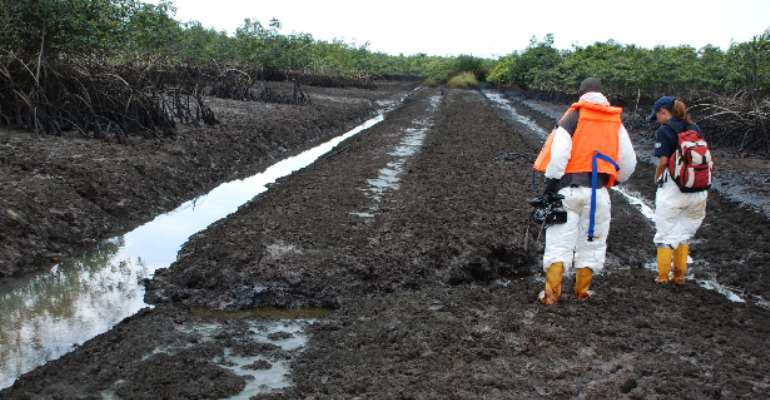President Buhari And The Hope Of Ogoni Restoration

Three squalid and undesirable experiences of the Ogoni have forced down the sunset. The first is the entry of Shell into Ogoni in 1958. The second is the death of Ogoni’s first university graduate and a federal legislator, Hon. Timothy Naakuu Paul Birabi in 1953 and the third was the hanging of 9 Ogoni activists including Ken Saro-Wiwa, Dr. B. Kiobel and 7 others in 1995.
Hon. T.N.Paul Birabi is widely acclaimed the father of modern Ogoni. He had been instrumental to the establishment of nearly all schools that were built in Ogoni prior to 1953. The only exception were St. Pius College, Bodo and the Ascention High School, Nchia, Eleme. His investment in education brought about the radical change in educational development in Ogoni during the post-independence era. These gains were to be lost following a poor and corrupt political leadership that emerged after his death. You can read more about Birabi on Ogoninews
Ken Saro-Wiwa is an Ogoni hero in his own right. There can not be a complete Ogoni story without mention of his love and unimaginable sacrifice for the Ogoni. He was killed by the Nigerian state in 1995 following his vocal condemnation of the rights violation against the Ogoni and the Niger Delta people of Nigeria.
Consequently, the Ogoni have evolved with every glimpse of hope been truncated an opressive system that offers death and frustration. The Ogoni today can be likened to the proverbial hungry man. Enmeshed in deep-rooted poverty that had been prosecuted by Shell in alliance with past Nigerian regimes.
The discovery of oil in Ogoniland in 1958 made Nigeria a truly significant oil exporter. By the time operations were shut down in 1993, 185,000 barrels left Ogoniland daily. That’s no joke. By today’s exchange rate, that builds up to NGN2,257,000,000 per day in revenue. An estimated US$7.4million per day at the value of $40 per barrel.
Today, after years of denials, Shell can no longer question the fact that its operations in Ogoni fell short of minimal standards set even by the Nigerian laws. In 2011, the United Nations Environment Programme(UNEP) had published an environment audit report on Ogoniland. The Nigerian government under President Goodluck Jonathan had promised to implement it but never did until he left office in 2015.
During the electioneering campaigns in 2015, President Buhari had visited Ogoni and promised action on the UNEP report. In about 100 days in office, he announced an action plan to fast track the implementation process. Some eight months later, no real progress had been made in the direction of setting up the structures for the report implementation.
The Ogoni still live in polluted and highly toxic environment with no access to good drinkable water, air and healthy food. The land had been poisoned by years of irresponsible oil mining operations.
Following a recent promise by the environment minister, Amina Mohammed, that the cleanup programme will be launched by the president, Ogoni still hopes that sooner than later, their will be a clean a safer environment and Ogoni will no longer be the worst place to live and raise children on earth.
Despite endemic corruption and obvious systemic failure in getting things right, the Ogoni still counts on President Buhari. The president we believe will keep his words on Ogoni restoration that life will again return to our Shell-battered land.
Written by Fegalo Nsuke, Publicity Secretary of The Movement for the Survival of the Ogoni People (MOSOP).
